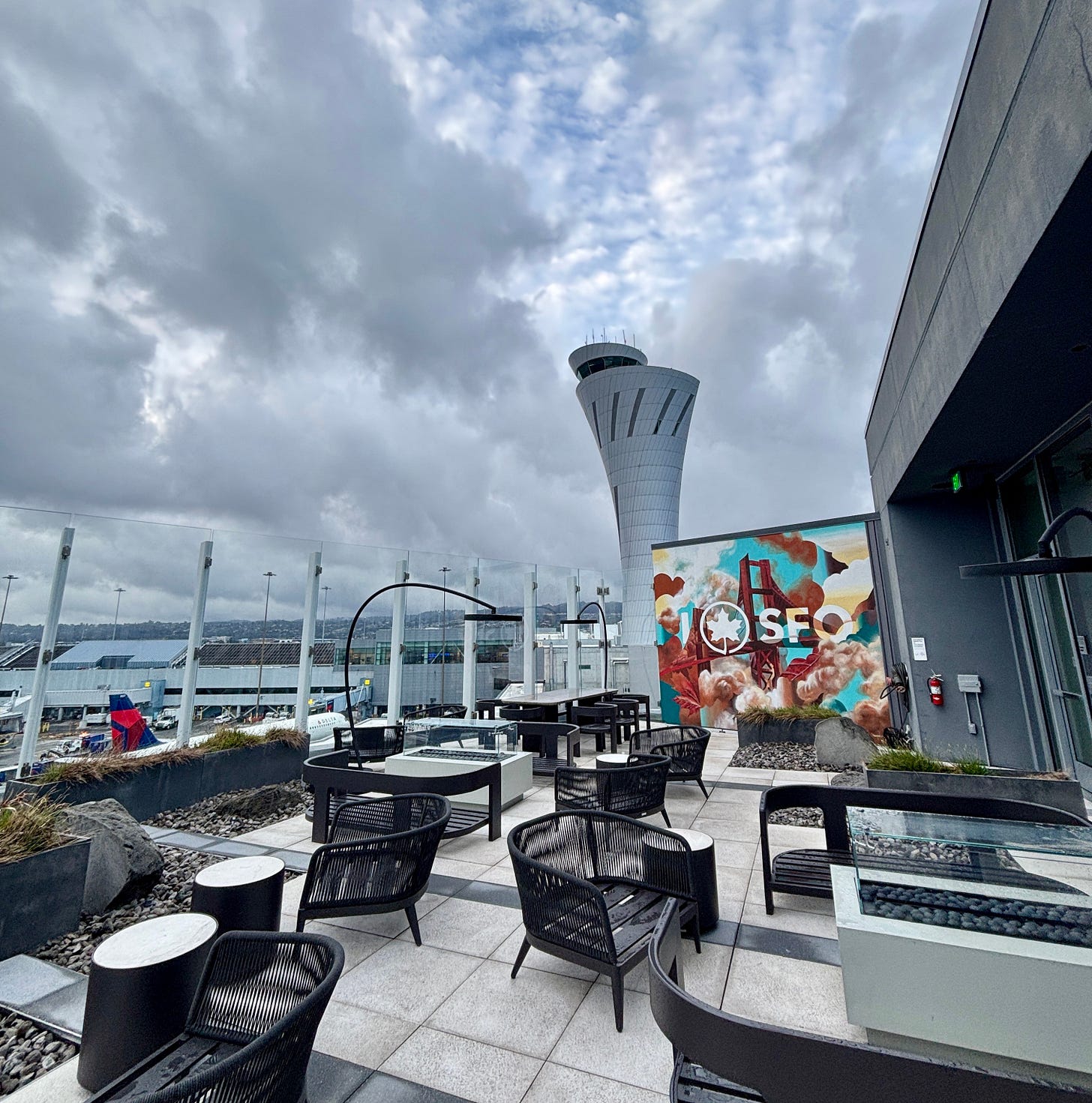April Dispatches
Air travel growth has "largely stalled," first class, and regional consolidation

Notes from the Runway
I finally had the chance to check out one of San Francisco International Airport’s airside terraces (see above) a few weeks ago. It was neither of the airport’s two public ones but the one inside the Air Canada Maple Leaf Lounge. I have to say, the Gensl…
Keep reading with a 7-day free trial
Subscribe to Airport Architecture to keep reading this post and get 7 days of free access to the full post archives.

